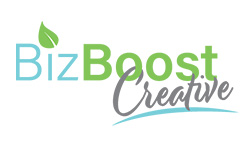 Researching and improving keywords on your website is a great place to start when trying to boost visitors to your website!
Researching and improving keywords on your website is a great place to start when trying to boost visitors to your website!
Your first step is to research and decide on keywords for your website. Choosing the right keywords is one of the most important things you can do. You need to choose keywords that people search for a lot, and then ensure that these keywords are placed throughout your site.
Do you know what words your prospects use?
You may think that you do, however sometimes it is more difficult than you think to identify your market’s common words. People will not always use the keywords that seem obvious to you.
If your site is targeting the wrong keywords, your potential customers might never find you. This will mean that you are throwing away all the dollars, time and energy that you have put into getting your site ranked in the search engines for these keywords.
So, rather than just guessing at these words, use one of the keyword research tools available on the internet. You can start by trying one of the free keyword suggestion tools such as:
https://adwords.google.com/KeywordPlanner
or
http://www.keyworddiscovery.com/search.html
These tools will give you an estimated search volume for each key word.
If you are serious about your keyword research, you will need to sign up for one of the paid Keyword research tools, or contact us and we will put you in touch with our SEO partner who specialises in-depth keyword research.
How many key phrases per page should I target?
You should try to target no more than two or three related key phrases per page of your site. Any more than that, and it will water down the impact of the most important key words.
Where should I put my keywords?
Following is an outline of the main areas that you should place your keywords:
Page title
This is extremely important to both the people that are searching and to the search engine “spiders” which find your site in the search engines. The page title is what you see written in the title bar right at the top of the browser. This needs to include your keywords, but they should to be included in such a way that it makes sense to the user who reads it… ie the title should explain what the purpose of your site or your page is. The page title should be different on every page of your site, and it should be relevant to the information that is on that specific page. It should aim to be approximately 55 characters long.
In addition, when searchers bookmark a favourite website, the title is what shows up in the bookmarks. A vaguely titled site won’t get repeat visitors if the searcher can’t figure out from the title why they bookmarked it in the first place.
Headings
From a search engine point of view, it is good to have as many headings containing your keywords as you possibly can on each page, so use headings and subheadings wherever possible. Of course the first priority is for the site to be useful to your visitors, so don’t overdo this. The most important heading for your keywords is the main heading on your page (known as h1), then the first sub heading (known as h2) and so on.
Content
Make sure that your main 2 – 3 key words are included generously throughout the content of your site. When someone enters a key word or phrase into a search engine, the search engine “spiders” will be looking for an exact match to these keywords on your site… they are not intuitive. So include them wherever you possibly can, especially in the first paragraph and headline of your site. It is best to focus on just a couple of keywords for each page, rather than a large number.
Writing content is a balancing act:
- It needs to be written so that it makes sense to your visitors, making them want to stay on your website and read more, and
- It needs to be written for the search engines in order to be found (ie. including your key words/ phrases as much as possible
HOWEVER…don’t over do it. Keyword stuffing, or including a key word too often can penalise you in the search engines.
Page URL
Include your keyword in your page URL, but make sure you still keep it short so that when you link to it or send people there it is not too long.
Bold Text
Bold text is usually used when you want to indicate that something is important. Putting your keywords in bold whenever you can will help these words to gain more attention.
Images
Whenever an image is placed on a page, it should be given a text description so that when you “mouse over” the image it displays the description of that image. This is called ‘Alternative Text’. Whenever possible, use your keywords in this description.
Links
Your site visitors and the search engines look at the clickable portion of your links to help them to understand what they are going to find once they click through. It is important to make these as descriptive as possible for every text and graphical link on your site. Don’t make your visitors guess by using links that say “click here” or other non-descriptive words. Use your keywords in these links whenever possible.
Description Tag
The description tag is not visible on your website but is in your web code, however this is what web searchers will see if they type in words or phrases into the search engine, and your site comes up as one of the search results.
This description is very important it needs to entice the searcher to click through to your site. If this first description does not attract them, guess what? They won’t visit your site!
The description should read like a sentence, not a keyword list. Try to write the most concise (25 words or less), keyword-rich sentence you can that describes your site and would attract visitors.
How do I add my keywords?
If you have a ‘content management system’ website you should be able to edit it yourself to add the keywords. If you have questions and you used a web developer then contact them and they will be able to point you in the right direction.
If your website is a HTML site (or one that you can’t update yourself) then you will need to ask your web developer to do this work for you.











